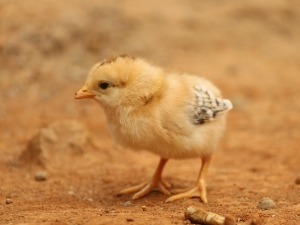
Small animals, like birds, are quite fragile, baby birds are even more fragile, the smallest changes in temperature or environment can be detrimental to them.
If you notice that your baby bird is breathing fast, you’d be right to worry, this article explores why this happens
The two main reasons why your baby bird is breathing fast are that the bird has respiratory issues, or that the bird feels threatened by something in the area.
Table of Contents
Baby bird breathing fast
Respiratory issues:
Many bird owners are familiar with their pets, they know their pet’s habits and they know when their pets are acting differently.
Signs that your baby bird is suffering from a respiratory illness are usually subtle and won’t easily be seen, but a baby bird breathing fast is a clear and glaring sign that something is up.
The most common reason for a baby bird breathing fast is a respiratory issue. These issues can develop as a result of infections or illnesses that cause issues in the bird’s lungs, sinuses, and chest.
Wild, companion, and poultry birds can suffer from respiratory issues. Respiratory issues can cause more than just fast breathing, other symptoms are sure to show up if your bird is ill.
Other signs of respiratory issues:
A change in voice: If you’re used to your bird making chirping noises in a certain voice, and this voice suddenly changes, then your bird may have a respiratory issue.
Open mouth breathing: Birds usually use their mouths to eat and their nares (bird nostrils) to breathe. If the nares are blocked by mucus, then the bird will breathe through its mouth. Nasal discharge can also develop if the bird’s nares are blocked.
Gasping when breathing: Bird breathing should be almost inaudible, if you can hear the bird gasping and wheezing as it breathes this is a bad sign, it shows that the bird is having breathing difficulties,
Tail bobbing: As much as humans and birds breathe the same air, our respiratory systems differ, humans use a diaphragm to breathe and birds do not.
The diaphragm flattens when we inhale creating a vacuum effect that brings air into our lungs, it relaxes when we exhale, pushing air out.
Birds use their chest muscles to breathe, these muscles compress and force air into the bird’s air sacs.
A distressed bird, with respiratory issues, will not be able to use their chest muscles to breathe, they will use their posterior muscles to do this causing their tail to bob up and down.
This tail bobbing can cause the bird to take in too much air which will irritate the bird’s lungs and throat.
What to do:
Removing the guesswork and taking your bird to a vet is recommended, the vet will be able to assess your bird and give you an accurate diagnosis of what’s going on with your bird. The vet will also suggest treatment to get your bird feeling better.
Visit an avian vet if you can, these vets will usually be able to assess your bird and notice issues related to your bird quicker than a general vet would.
Panting:
If your baby bird is not showing any other signs of being ill, other than breathing fast, then the bird may simply be panting. This behavior can mean that your baby bird is worried, anxious, or fearful about something.
In addition to your bird taking in many quick short breaths, the bird, if panting, may also be breathing with its mouth slightly open.
Another sign that your bird is feeling scared is if it tries to keep far away from what’s scaring them. If the baby bird has feathers, it will try to fly away. Your baby bird may even poop out of fear if it feels scared.
What to do:
Try to figure out why your bird feels stressed, anxious or scared. Your bird may be scared of your other pets like your dog or cat. If this is the case, you’d need to separate the two animals.
Removing your other pet should make your baby bird calm down, relax, and stop breathing fast.
Other pets and baby birds can live together but your other pet should not be able to access your bird and you should never leave the two animals alone together.
Conclusion
In conclusion, one of the two things mentioned above is likely the cause of your baby bird breathing fast, your baby bird may have a respiratory illness or it may feel threatened.
An avian vet will be able to treat your bird if it is suffering from a respiratory issue, removing the threat will help the bird calm down
If you enjoyed this article then you may also be interested in other baby bird related articles. Here are some articles that you may be interested in: Baby Bird Died Overnight?, Baby Bird Opening And Closing Its Mouth?, Baby Bird Clicking When Breathing

